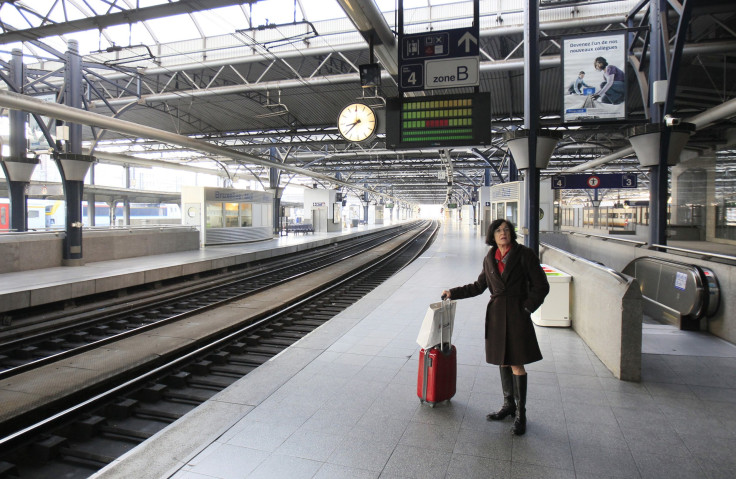Anti-Austerity Strikes Disrupt Travel Across Europe

Thousands of travelers across Europe faced delays Wednesday as the European Trade Union Confederation-led “day of action and solidarity” forced hundreds of flight cancellations and brought trains to a screeching halt.
The ETUC represents 85 labor organizations from 36 countries, totaling some 60 million members, and its large-scale mobilization was meant to “call upon Europe’s leaders to demonstrate their determination to really get to grips with the deterioration in employment and to respond to the growing social anxiety felt by Europe’s citizens.”
“By sowing austerity, we are reaping recession, rising poverty and social anxiety,” argued Bernadette Ségol, ETUC General Secretary. “In some countries, people’s exasperation is reaching a peak. We need urgent solutions to get the economy back on track, not stifle it with austerity.”
Ségol believes Europe’s leaders are wrong not to listen to the anger of the people who are taking to the streets.
“The Troika can no longer behave so arrogantly and brutally towards the countries which are in difficulty. They must urgently address the issues of jobs and social fiscal justice, and they must stop their attacks on wages, social protection and public services.”
Major strikes took place in the debt-burdened nations of Spain, Portugal, Greece and Italy Wednesday, while demonstrations broke out in France and several Eastern European countries.
Hundreds of flights -- including many connecting southern Europe to regional hubs like Paris Charles de Gaulle, Amsterdam Schiphol and London Heathrow -- were canceled Wednesday amid the occasionally violent protests.
Iberia was the hardest hit with more than 350 cancellations, including many on Iberia Express and Air Nostrum. Spain’s budget carrier Vueling and Portugal’s national airline TAP canceled roughly 200 flights apiece Wednesday.
British Airways cancelled eight round-trip flights between Madrid, Barcelona and London as well as two return services to Lisbon. It also allowed passengers to re-book trips to Spain through Nov. 28.
“We apologize to our customers for any inconvenience caused by this industrial action which is beyond our control,” the carrier said, adding that it was considering using larger aircraft to help as many customers as possible get to their destinations.
Air France cancelled “most” of its flights to and from Spain and “some” flights to and from Portugal, while KLM axed just eight flights in and out of Spain.
Britain-based budget carrier EasyJet canceled 26 flights and rescheduled 10 others on Tuesday to “proactively minimize disruption.” Most were on routes in and out of Greece, and the carrier warned customers “that they could experience delays to their travel plans” even if their flights were still scheduled to depart.
Those seeking alternatives on land found that international rail services were also suspended.
Eurostar, which connects London with the European mainland, said it was “currently operating normally, however onward railway connections and local train services beyond Brussels are likely to be disrupted.”
Just 20 percent of Spain’s long-distance trains and a third of its commuter trains were running Wednesday. Over in Portugal, the Lisbon Metro was completely shut down, and just 10 percent of all trains were running in the nation.
The Nov. 14 multi-national strike is one of the largest the continent has seen, involving approximately 40 trade union organizations from 23 countries. The protests came as governments across the eurozone enforced cuts to public sector pensions, wages and other services in return for a financial bailout.
© Copyright IBTimes 2025. All rights reserved.






















